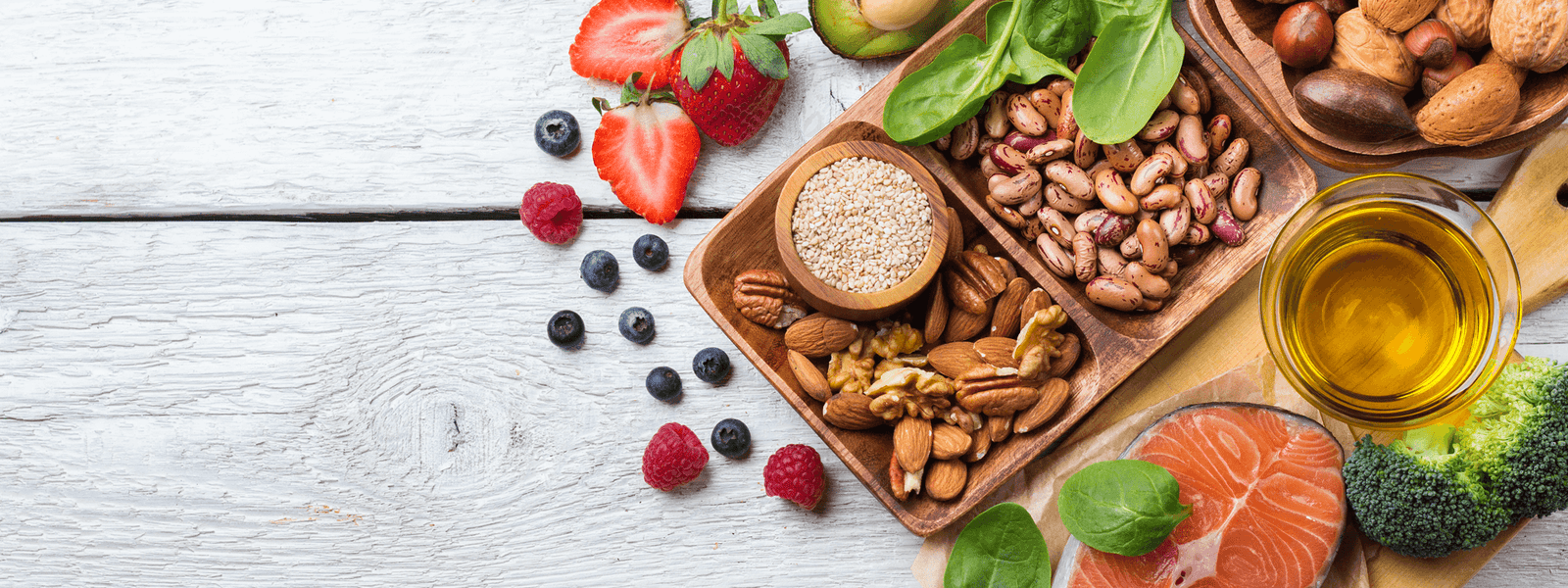Are you confused about the conflicting advice about whether to eat breakfast or not? Many of us have been raised with the belief that we should: “Eat breakfast like a King, lunch like a Prince and dinner like a Pauper!" The rationale is that this routine is supposed to help boost our metabolism, prevent intense food cravings and energy loss, and to help with fat burning. But what is the scientific evidence for this?
Though earlier studies may have found correlations between breakfast eating and better health outcomes, few studies have tested this conclusion in randomized clinical trials, the gold standard in scientific research.
The few more robust studies are slowly emerging, and this is what they reveal.
Studies Testing if Breakfast Is Good for You?
The authors of this 16-year long-term study of 27,000 male Healthcare professionals (ref. 1) concluded that: “Eating breakfast was associated with significantly lower CHD (coronary heart disease) risk in this cohort of male health professionals.”
These men who skipped breakfast were 27% more likely to experience a heart attack or die as a result of coronary heart disease.
But critically the study also noted that these men “Were also more likely to be younger, single, smokers, alcohol drinkers, employed full-time and less likely to be physically active than people who ate breakfast.”
In other words, the researchers admit that other lifestyle factors such as smoking and drinking may have impacted the results. So, one wonders: how valid are the findings?
Another study (ref. 2) divided 309 overweight and obese but otherwise healthy adults into two random groups. Some were told to eat breakfast, while others were told to skip it.
After 16 weeks, the researchers found no difference in weight loss between the groups and concluded: “Contrary to widely espoused views, skipping breakfast had no discernible effect on weight loss in free-living adults who were attempting to lose weight”. In essence, it didn’t matter if they ate breakfast or not.
Yet once again I question the results.
You see, although this may have been a randomized study, it appears that the researchers didn’t control the participants’ diet. Therefore, it is possible that the reason why there was no notable weight loss difference between those who ate breakfast and those who didn’t, could be because they may have been eating an unhealthy diet.
One of the most recent studies in June 2014 (ref. 3) analyzed the metabolic effects of eating or skipping breakfast. The conclusion as reported by Time Magazine (ref. 4) is that “Contrary to popular belief, having breakfast every day was not tied to an improvement in metabolism. Prior thought, supported by research, has shown that eating early in the day can prevent people from overeating later out of hunger, and it boosts their metabolism early. The new study which examined causal links between breakfast habits and energy balance couldn’t prove that.”
What the study did show is that eating breakfast was linked to a greater (not reduced) overall dietary energy intake! As stated by the authors: “Daily breakfast is causally linked to higher physical activity thermogenesis in lean adults, with greater overall dietary energy intake but no change in resting metabolism. “
So according to the results of the 2014 study, eating breakfast makes us hungrier and we eat more during the day!
This greater desire for food once again leads me to question the accuracy of the results and conclusion. That’s because, as with the previous study, the type of breakfast food was not accounted for in this study.
Usually, eating a typical carbohydrate-rich breakfast (like bagels, toast, syrup, processed orange juice) tends to make you hungry again far sooner than a low-carb, high-fat breakfast will. The reason for this is that if your body is using sugar as its primary fuel, it will need a “refill” at regular intervals, as sugar is a very fast-burning fuel.
What Are These Results From So-Called ‘Scientific’ Studies Saying?
If the results are taken at face value, one could conclude that although eating breakfast may reduce the risk of developing CHD, it does not appear to aid weight loss efforts, nor boost metabolism.
But if the results are scrutinized by asking if the diet of the study participants was considered and controlled for, then such a conclusion is less sound. That’s because, in all the studies above, the research did not control for the type of food consumed.
That seems rather fundamental to me!
It could be that IF the participants consistently ate a healthy balanced breakfast in conjunction with a sensible lifestyle, this may have helped with weight loss and other health benefits.
Therefore, in my opinion, I don’t think ‘science’ has given us much clarity at this point about whether to eat breakfast or not!
There does however appear to be greater scientific clarity and consensus when it comes to the benefits of skipping breakfast.
Is Skipping Breakfast Good for You?
There appears to be some solid scientific data supporting the health benefits of skipping breakfast, also known as “Intermittent Fasting”. This means no eating between dinner time and lunch the next day. So, the ‘feeding window’ is cut down to between noon and 7 p.m. for example. Some of the possible health benefits claimed include:
1. Increasing the amount of the anti-aging Human Growth Hormone (HGH)
This recent study (ref. 5) confirmed earlier findings about the effects of fasting on HGH. HGH is a metabolic protein, and fasting was shown to trigger and accelerate its role in preserving lean muscle and metabolic balance. During the study’s 24-hour fasting periods, HGH increased an average of 1,300% in women, and nearly 2,000% in men.
2. Boosting the immune system
Fasting, especially when it is done for longer periods (2-3 days) has been shown (ref. 6) to kick-start the stem cells into producing more white blood cells, which are part of your body’s natural defense arsenal. As reported by Daily Life (ref. 7): “Scientists at the University of Southern California (USC) say the discovery could be particularly beneficial for those suffering from damaged immune systems, such as cancer patients on chemotherapy. It could also help the elderly whose immune systems become less effective...
“And the good news is that the body got rid of the parts of the system that might be damaged or old, the inefficient parts, during the fasting. Now, if you start with a system heavily damaged by chemotherapy or aging, fasting cycles can generate, literally, a new immune system.”
The researchers discovered that longer fasts (two to four days) led to the reduction of an enzyme called protein kinase A (PKA). This PKA reduction appears to ‘turn off’ the gene for PKA, which in turn triggers the stem cells to shift into regeneration mode. As Valter Longo, professor of gerontology and biological sciences at the University of Southern California says: “When you starve, the system tries to save energy, and one of the things it can do to save energy is to recycle a lot of the immune cells that are not needed, especially those that may be damaged.“
This tends to suggest that while short fasts can be beneficial, longer fasts can be harmful.
Please note I am not recommending that anyone starts fasting, for however long, without proper consultation with, and supervision by a qualified medical professional. Properly conducted fasting may indeed be beneficial, but there may also be risks, especially if you have blood sugar and cardiovascular irregularities.
3. Other claims
Others have claimed that Intermittent fasting also helps to: “Normalize insulin and leptin sensitivity, boost mitochondrial energy efficiency, normalize ghrelin and triglyceride levels, promote neural health, and reduce oxidative stress.”
However, I have not found robust scientific studies on humans to prove this.
Based on this information, what is the conclusion about “Is breakfast really the most important meal of the day?” The scientific information is not clear either way. But it does appear to be a little more robust when it comes to the possible health benefits of intermittent fasting.
Overall, my view is that when you eat and what you eat really depends on your unique biology, needs, and dietary habits. Remember too, that these change over time. Just because eating breakfast may have been right for you when you were 20 years old, doesn’t mean it suits you when you are 50.
Ultimately, it’s probably best to do what feels natural for you: If you’re a born breakfast-eater, keep it up, healthily. But if breakfast isn’t your thing, it may well be fine to skip it and eat your first meal of the day when you feel like it, not when the Convention dictates it.
Caramia Hartley
R&D
18 Sept 2014
References:
- For the “study of breakfast eating and incident coronary heart disease in a cohort of male US Health Professionals, see: http://circ.ahajournals.org/content/128/4/337.abstract?sid=6c59e2d9-c6a9-44be-bd09-79d7ec32595b
- To see “The effectiveness of breakfast recommendations on weight loss: a randomized controlled trial, see: http://ajcn.nutrition.org/content/early/2014/06/04/ajcn.114.089573.abstract
- This study reviews “The causal role of breakfast in energy balance, metabolism and health: a randomized controlled trial in lean adults”
http://ajcn.nutrition.org/content/early/2014/06/05/ajcn.114.083402.full.pdf
- The Time magazine article can be seen at http://time.com/2838453/everything-you-know-about-breakfast-is-wrong/
- The study which reviews the effects of fasting on HGH can be seen at: http://www.eurekalert.org/pub_releases/2011-04/imc-sfr033111.php .
- The study describing how “Fasting triggers stem cell regeneration of damaged, old immune system” is at: http://medicalxpress.com/news/2014-06-fasting-triggers-stem-cell-regeneration.html
- To see the “Daily Life” article on “How fasting for a few days can regenerate the immune system” refer to: http://www.dailylife.com.au/lifestyle/diet-and-fitness/how-fasting-for-a-few-days-can-regenerate-the-immune-system-20140606-39mr1.html


 Supplements
Supplements Bundles
Bundles

















